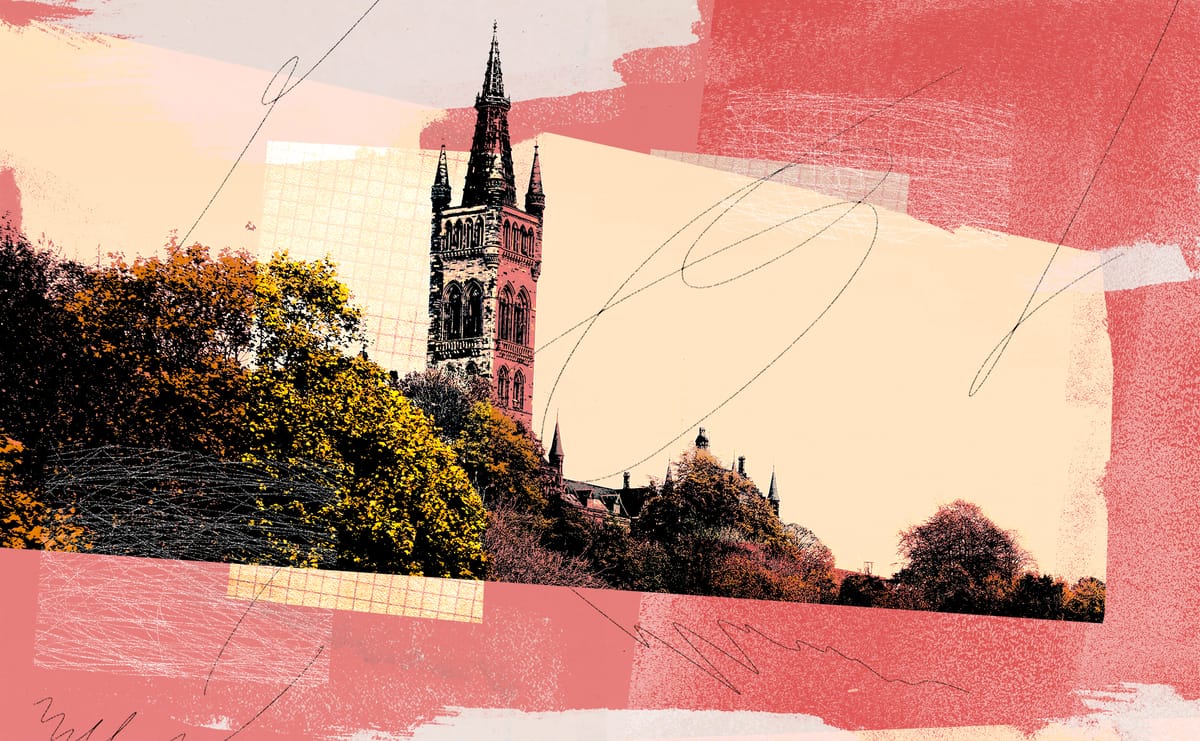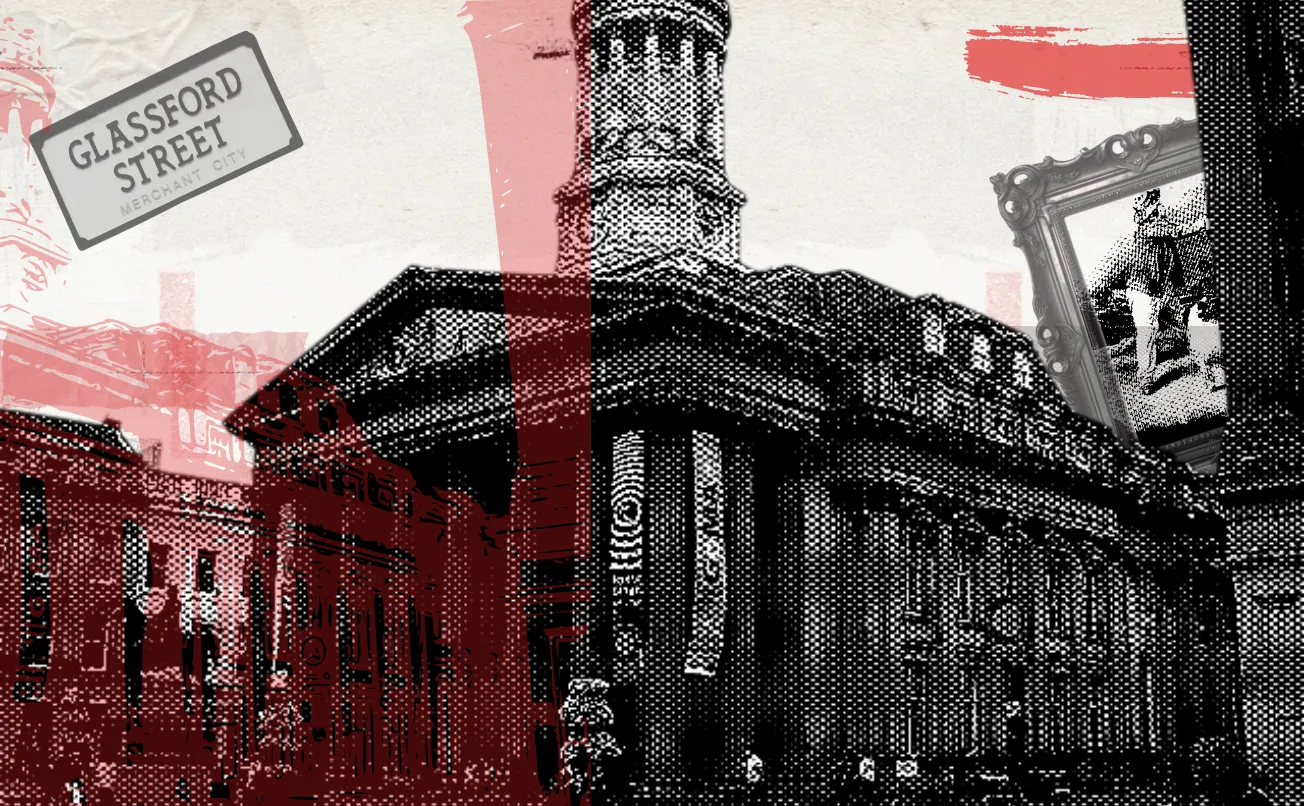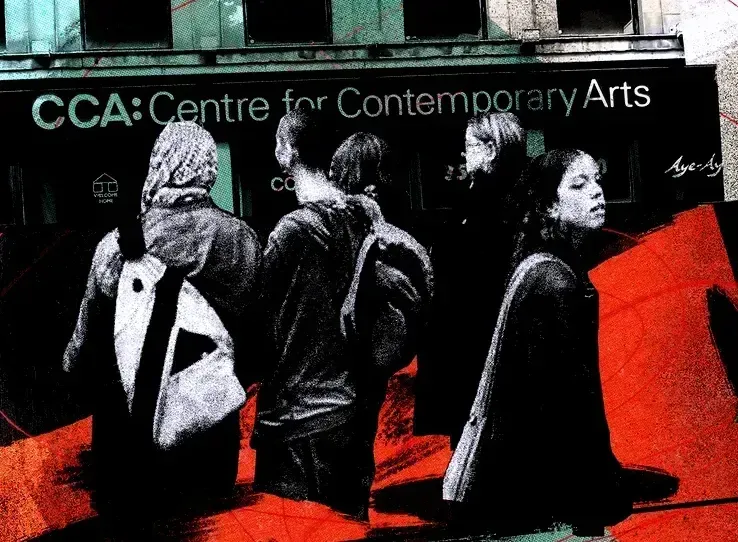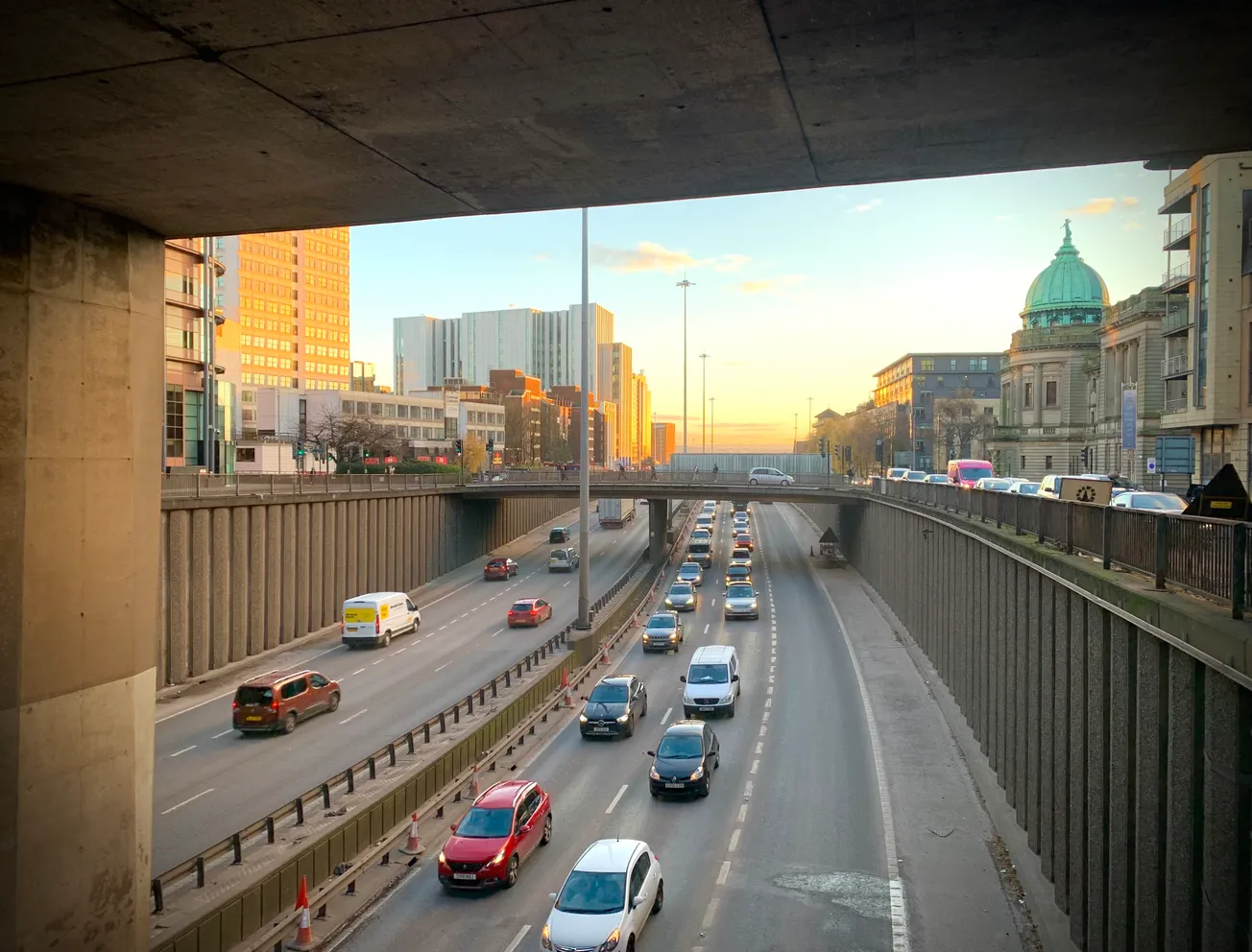The summer before my father deserted our family for good, he and my mother dropped me off with my grandma and travelled up to Glasgow. It was the beginning of a seven day road trip that would take them well into the Highlands, finishing at Skibo Castle, 18 months after I’d arrived. The endeavour was a DIY-heritage tour to explore both their roots; my double-barrelled surname — the result of unmarried parents, rather than aristocratic ancestry — is ‘Lothian-McLean’, about as Scottish as it gets. They started in Glasgow, where my mother (McLean) had been told her lineage originated from.
Neither of my parents possess the brogue that earmarks a Scot as ‘wan o’ us’. My mother has a nondescript English accent, having shaken off an inheritance of broad Derbyshire vowels in a bid to harness the snobby social mobility of the 1970s. My father’s voice was melodious; honeyed — foreign. He was from Kingston, Jamaica. They had met in the early 1990s, when both were inching towards PhDs and middle-age, eyes snagging across the departmental offices of the University of Warwick’s business school.
My mother only told me about their weekend in Glasgow when we were here, visiting, last year. The dappled stones of St Vincent Street Church had jogged a memory. I was preparing to relocate for work. I pressed her for details, excited by a further link to the city, Scotland, and my father, who exists only to me as a composite of snatched details: his love of football and athletics; the gap in his teeth; a pixelated picture of a headstone in a Kingston churchyard.
In recent years, I have more seriously considered the implications of my name. I’m used to comments and questions about how exceedingly Scottish it is — and by contrast, how conspicuously English my accent (and national identity) is. I knew, or thought I did, that the history was tangled up in empire and industry — the Jamaica slave trade on one side and the Clyde shipyards on the other. But now I wanted the sort of details that could turn these abstract nouns back into living people.
Sorry to interrupt. We hope you're enjoying this article. We just wanted to let you know that you can get two totally free editions of The Bell in your inbox, every week. That's the Monday briefing — full of news, scoops and recommendations — and the weekend read, which you're perusing right now. Just click the button below to sign up. Again, it's completely free.
Such specifics — the who, what, where and why of it all — are hard to come by.
“I don’t know,” was my father’s refrain on their Glasgow trip, when my mother tried to extract any information. He knew his father’s name, and his grandfather’s before him. But after that it got hazy. Once you get back into the period of enslavement, tracking a specific person becomes as difficult as following the sale of a cow, because that was the status afforded to Africans forced into chattel slavery. Renamed and resold, over and over.
Not that my mother really had firmer information on her relatives. She’d been told her great-grandfather was called John McLean and he’d come down from Glasgow for work, via Wales, where he met his wife. On an overcast day, walking past the Clyde with my father, my mother thought about these roots, wondering if John had sweated for a wage in the city’s famed shipyards. She knew he was a metalworker, in the shipbuilding industry. But that was about it.
Yet when I moved to Glasgow, an opportunity arose to excavate buried knowledge. I felt sure that Glasgow was, if not the answer, the spring from which all further answers would flow, much like the movement of trade and industry that had propelled it to become the bustling second city of Britain’s empire.
The Lothian Question
Trelawny, Jamaica. 3 May 1899. Lydia Ann Moss touches her swollen belly and glances at a calm sea. She’s heaving herself down a dusty dirt track, towards the centre of Stewart Town, passing a handsome stone Anglican church on her right. Even though it was built in 1840, six years after the British declared everyone emancipated, separation remains within the congregation. Rich, usually white, folks at the front. The former enslaved, now ‘free’, consigned to linger at the back.
A breeze ruffles the palm trees slightly. A dull ache in Lydia’s lower belly presses insistently for a moment before ebbing away. The pains only started about an hour ago. She’s got time yet.
Later, Lydia will give birth to her eighth child in as many years. She and her husband, Ethelbert, will name him Leslie. Leslie Llewelleyn Lothian — my great-grandfather.
Lothian isn’t a particularly prevalent surname; according to genealogy site Forebears, there’s just under 3,500 people around the world who still bear it today. It’s most popular, obviously, in Scotland, but Jamaica comes in fifth. That’s no coincidence: 32% of Jamaican slaves were owned by Scots.
But it’s very difficult to track exactly which of my forebears was responsible for shipping it over to the Caribbean. We have records of Ethelbert’s father, John Lothian via the registration documents for his marriage to Lydia in 1889. Prior to that: scraps.
Whoever he was, it’s almost certain that the Scot who imported the Lothians to Jamaica left via one of Glasgow’s associated docks: Port Glasgow. The modern town sprang up as a satellite settlement in the late 1600s around the harbour created by Glasgow’s authorities to allow control of transatlantic trade — and the rates associated with it.
Over the next fifty years, Port Glasgow became the teat from which Glasgow suckled and grew fat, shipping in goods from the West Indies like tobacco, rum and timber that underwrote the grand architectural undertakings happening 18 miles up the River Clyde. Import wasn’t Port Glasgow’s only business and material goods weren’t the sole cargo; occasionally the ships bound for the likes of Jamaica would carry Scots migrating to seek their fortunes in person (and, on a few particularly terrible occasions, the enslaved).
In his book ‘The Glasgow Sugar Aristocracy’, Stephen Mullen, perhaps the foremost historian who has mapped Glasgow’s role in Britain’s slave trade, recounted a typical journey of one of tens of thousands of Scottish men who travelled to the West Indies on such a mission between 1750 and 1834. His chosen subject was 19 year-old John Kennedy, who, on a misty early January morning in 1833, climbed aboard a small barge from Port Glasgow and was rowed aboard the good ship ‘Glasgow’, docked in deep water.
Mullen writes that the teenager had probably registered for the ship’s voyage in the eponymous city itself, likely at 49 Queen Street, near the Royal Exchange. The Exchange had replaced Trongate’s Tontine Room as “the city’s commercial headquarters”. Previously the mansion of a tobacco and sugar lord, in its new iteration the Exchange was home to the slavery lobbyist group the Glasgow West India Association, and was where merchants jostled and argued over the price of wares like sugar in the sample room. In Glasgow, I entered the former Exchange many times, unaware of its past as I curled up on the library sofas in the basement: it’s now the Gallery of Modern Art.
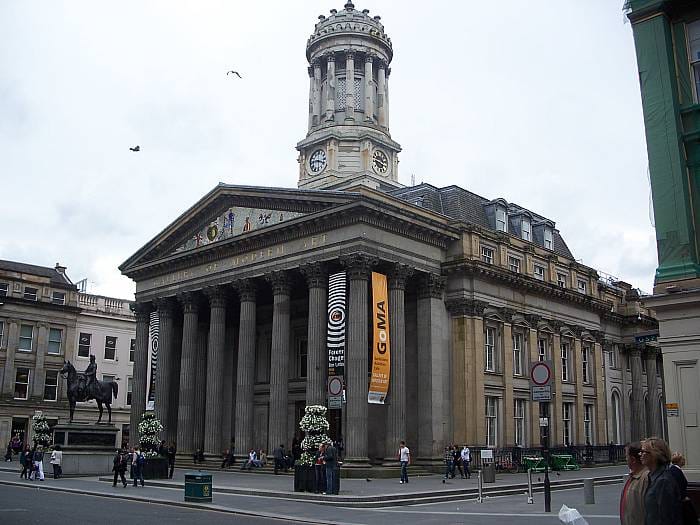
A few years before John Kennedy was on his way, another young man almost certainly made the journey from Port Glasgow to Jamaica, trying to get in on a gold rush built on human bondage: John Lothian, the grandson of a baillie from Burntisland where a street still wears the family name. There’s no record of exactly when he arrived on the island, but by 1778, he was listed as a carpenter living in Trelawny parish. Trelawny, and the neighbouring parish of Saint Ann, accounted for disproportionate amounts of Scots — yellowed maps show names like Glasgow, Hampden and Paisley. Then his record disappears into the ether.
The name “John Lothian” keeps coming up, though. Another surfaces in a UCL database — this time, a plantation owner. By 1815, a John Lothian’s estate had registered ownership of the Gibraltar plantation, in Saint Ann parish. Fifty-four Black Africans were enslaved there. Two years later, the Lothians — William, John and James — added another Saint Ann plantation to their portfolio: the Endeavour, where 59 slaves toiled to produce coffee. A 'John Lothian' also leased a third Saint Ann plantation from 1823-1828.
Were any of these many John Lothians one and the same? And what, if anything, links them to my great-great grandfather? Was their name passed down directly with their bloodline to a child delivered by a woman they owned — is that how a son born with black skin on Jamaican soil came to bear such a Scottish name? Or was it absorbed by osmosis as sometimes occurred, attached to all their human ‘property’? Emancipated former slaves were also occasionally known to give their children the surnames of prominent local families, to try and engineer the best start in life through association.
A lot of Scots didn’t stay in the West Indies for good; the climate was sweltering, illness rife and infrastructure not on par with the incredible strides being made back home, where blood money was helping to develop Glasgow at an incredible lick. The city, writes Stephen Mullen, was the “key entrepôt of the produce of chattel slavery to meet European-wide demand”, acting as a “vast warehouse” from which stock could be sent all over Europe. People began migrating to Glasgow rather than getting out; at the beginning of the 1700s, it had a population of 15,000 — by the close of the century the figure was between 77,000 and 80,000.
The McLean connection
When I arrived in the city, the story of the Lothians was at the forefront of my mind. But over time, the other branch — the McLeans — starts to dominate my thoughts as I wander my new surroundings. My mother’s great-grandfather was called John McLean and he’d come down from Glasgow for work, via Wales, where he met his wife. Walking the Clyde, and poring over books about the city’s history for work sparks my imagination, which is foolishly romantic at the best of times. Maybe I’m literally following in his footsteps, I wonder.
Early into my stint, I go to the National Records in Edinburgh for a story. Glancing idly at the screen to my left, I see the man is searching for a ‘McLean’. A thrill runs through my body; I’ve rarely seen my surname in the wild. Maybe it’s a sign that I’ve come back to a place of beginnings, and perhaps belonging.
More like an omen. I am quickly — brutally — made aware that it will take more than a Scottish name to assimilate. While the borders between England and Scotland are porous, economic pressures have recently heightened some long simmering resentments around migration patterns. Specifically: young Glaswegians are sick of a glut of Londoners moving up to the city, blaming them for increases in house prices and private rents. For the first time in my life, I find myself on the wrong side of the gentrification line, and I’m made aware of it.
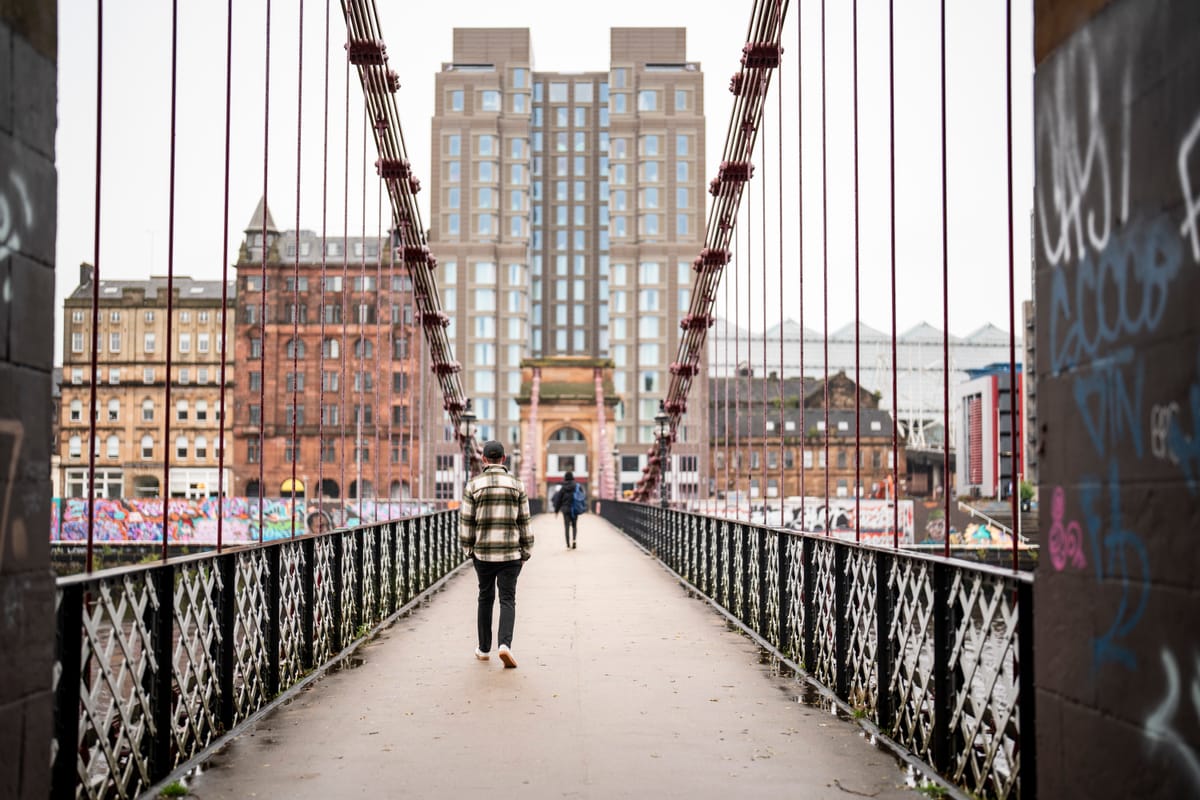
Another thing about Glasgow I discover is that many here are in mourning for when the city felt ascendant. Most recently this was the cultural surge of the 1990s. But the city’s coffers were last properly fit to burst during its imperial and industrial heyday. Crumbling architecture and the lack of money to maintain it is a visible reminder of Glasgow’s former wealth. During my time here, endless people expressed to me a deep longing for a period when things were ‘better’. The terrible, unsayable fact, of course, is that some of that ‘better’ was fuelled by the rampant extraction of goods and people from other nations (and imperial Glasgow knew it — residents were at the forefront of the campaign to abolish slavery).
One winter’s day, over coffee in Dennistoun (an area built on cotton and tobacco money), a new Scottish acquaintance describes to me why they chose to return from Australia, even though they loved it: the enterprise, they said, felt “uncomfortably colonial”. Dramatic of course, but getting at an uneven and uncomfortable historic relationship that’s hard to put into words. This, I realise, is how I feel about my presence in Glasgow. Like I'm extracting more than I'm due.
I too, have, in a sense, made my fortune here. The Bell has had an incredible launch, the task I was hired to oversee — not one year old, we’ve just hit 10,000 readers. I’ve worked on fascinating stories, and been part of something exciting, and important, from the very beginning.
But in this city, the arrival of an outsider — from a land seen as more prosperous — is greeted warily by some. It’s a small minority but the critique is painful, because there’s kernels of truth there. I wonder at the sense of difference I’m experiencing. Did my namesake feel the same, stepping off a boat into a wall of heat, or setting up home amid industrial smog? Or were their thoughts concentrated on pursuing their own hopes and dreams?
I can’t shake it, the sense I am taking up the wrong kind of space here. Eventually I realise the city isn't getting the best of me, nor I of it. I suppose this is my explanation for why The Bell is looking for an amazing new editor, who will do the publication justice and lead it forward.
Preparing to leave, I started thinking about completing my mission to hunt down John McLean. Finding him among a sea of 19th century Glaswegians would be a far harder enterprise than a Leslie Llewellyn Lothian in Jamaica. So I started from the beginning; my beginning: leafy Herefordshire, on the border of Wales, where I’d grown up in the tiny two-bed cottage that the McLeans had once lived in. Finally doggedly applying myself to the task, I manage to trace the McLeans back.
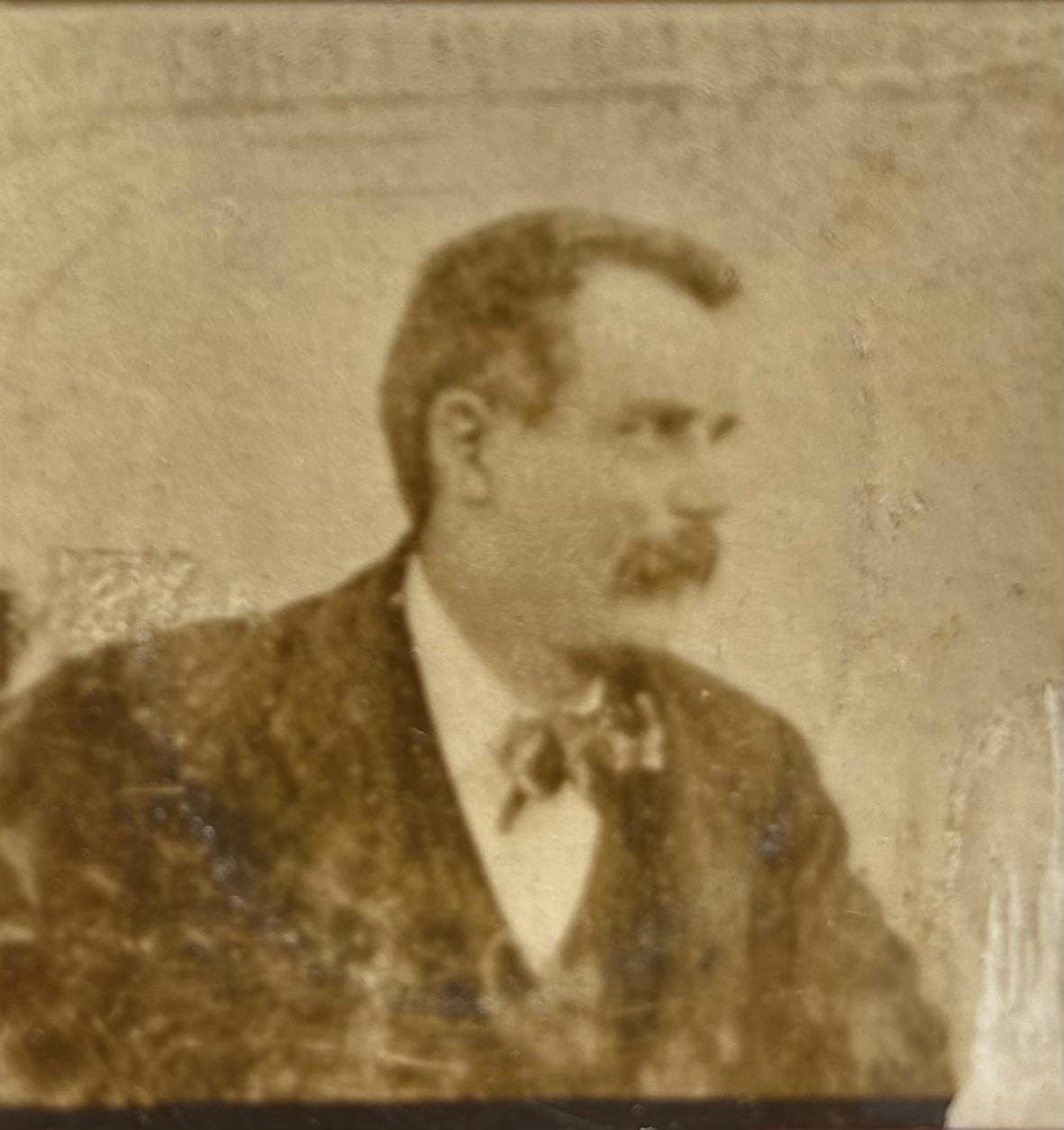
And discover, I’ve been operating under a false premise. Actually, John McLean, the ship plater, wasn’t Glaswegian. He wasn’t even Scottish — he’d been born in Little Lever, a village near Bolton. I had to go back another generation to find the Scottish John McLean, his father. He had come down to England in search of work; first Newton Heath — the birthplace of Manchester United — and then Jarrow in County Durham.
But he wasn’t from Glasgow either. It seems likely he hailed from Dunbartonshire, or at least had settled there by the time he got married to his wife, Isabella, their 1832 nuptials registered in Old Kilpatrick. Their family rapidly expanded, which is probably why, at some point between 1843 and 1846, Isabella and John hustled their children down to what was then Lancashire, in search of work that could support the growing brood.
So there it is; I’m not a child of this grand city by descent, just choice and I’ve relinquished even that privilege. My ancestors only likely passed through on their way south, or west across the seas. Unwittingly, I am now treading in their ghostly wake.
After clearing out the beautiful Dennistoun flat that I could never settle into, I go for a walk around the Necropolis, proposed by the owner of the largest sugar plantation in Jamaica as a permanent resting place for the city’s powerful.
Following a familiar path, I think about how some of those human flows from Scotland to the rest of the world have now reversed — and how that is seen by some as just as bad, if not worse. I think about what makes a place a home and how I wasn’t willing, or able to close the gap here; how it wouldn’t have mattered how many anonymous strangers online told me to “f**k off back to London” if I’d actually forced myself to put down roots — as so many others successfully do. I think about who gets displaced to make room for someone else and scarcity mindsets. I think about how exhausting moving is and how lucky I am to fall back into the comfort of my childhood home, the cottage once occupied by an old ship plater and his family.
Collecting my bags, my phone dings with a text; it’s my father’s sister, Marcia, who now lives in the States. We’ve never met in person; I’d messaged her for the first time to see if she had any more information on the Lothians (she doesn’t). But she writes excitedly: “a friend of mine went to Scotland the other day and she sent me pictures of the buses with Lothian on them. I will send you a picture of the bus with your last name”. She’s so enthusiastic, I can’t bring myself to tell her I’m on the train out of Glasgow at that moment, my surname losing the last of its meagre currency.
The Bell is currently looking for a new editor. If you know someone who is passionate about Glasgow, and fits the bill, click below for more details.
